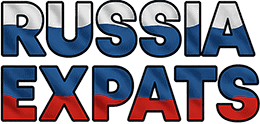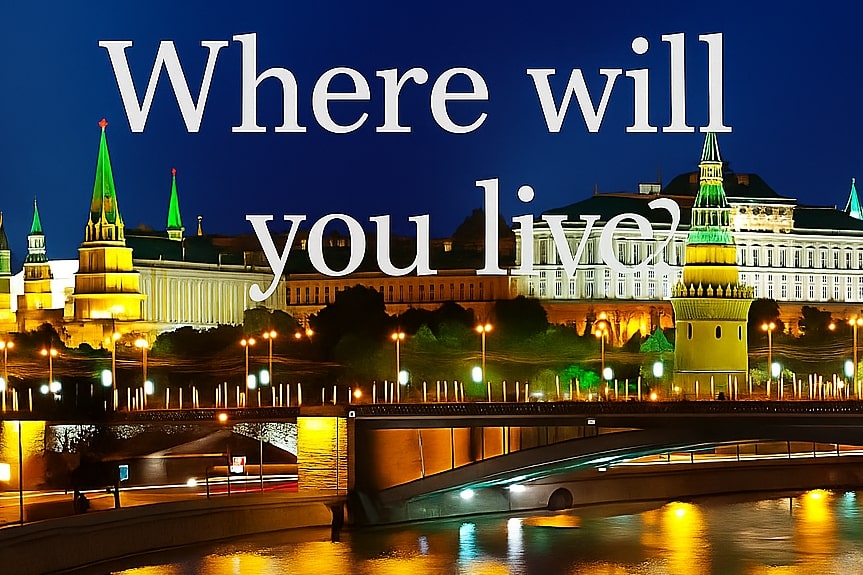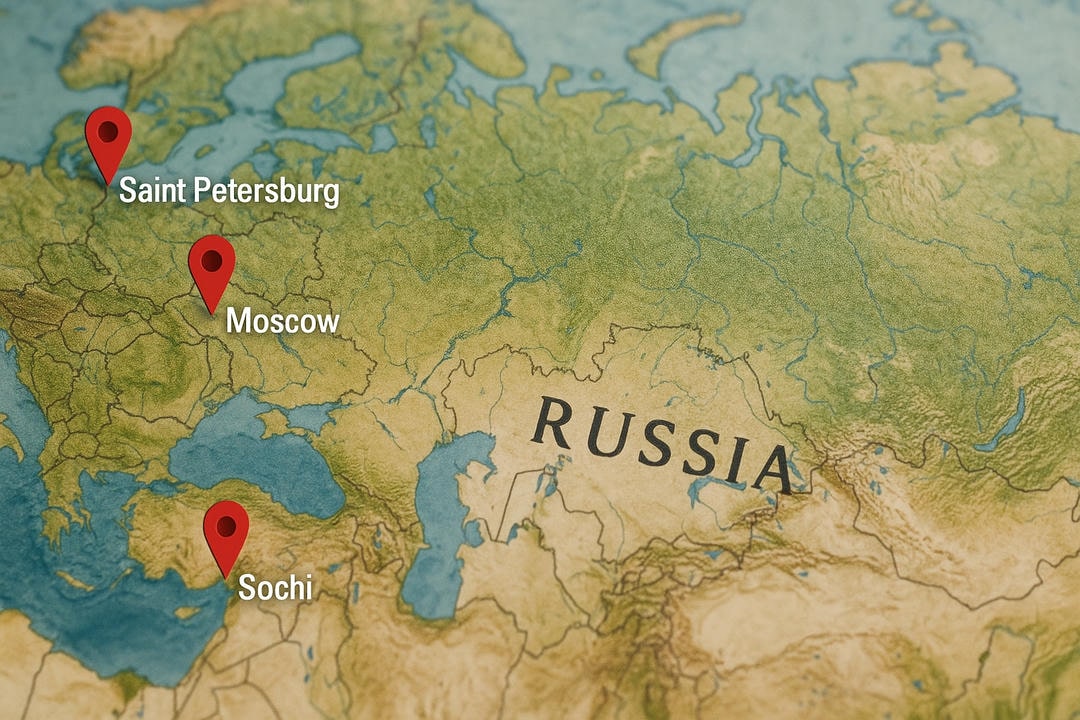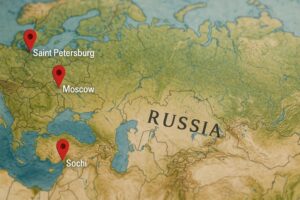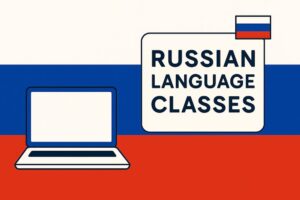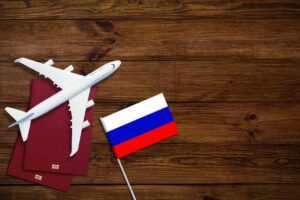Russia presents a complex and intriguing landscape for expatriates seeking new opportunities and experiences. Its cities vary widely, each offering distinct cultural, economic, and lifestyle advantages. From the bustling streets of Moscow to the serene shores of Lake Baikal near Irkutsk, the choice of where to settle can shape an expat’s daily life profoundly. Understanding these differences is essential before making a move that could redefine one’s personal and professional journey..
Introduction
Although often viewed through a complex lens, life as an expatriate in Russia offers a unique blend of cultural richness, vibrant urban experiences, and a deep connection to a nation known for its profound history and artistic heritage.
Expat experiences here often revolve around intentional cultural integration, allowing newcomers to immerse themselves fully in local traditions, cuisine, and social customs.
This integration fosters a sense of belonging and personal growth, enabling expats to navigate Russia’s dynamic cities with confidence and curiosity.
The journey challenges and rewards those seeking freedom through discovery and meaningful connection in an extraordinary environment.
Because Russia offers a compelling fusion of historic grandeur and modern vibrancy, it stands out as an attractive destination for expatriates seeking both cultural depth and professional opportunities.
Its vast cultural diversity enriches daily life, inviting expats to explore myriad traditions and artistic expressions.
The country’s renowned culinary experiences—from hearty regional dishes to innovative gastronomy—add flavor to the expat journey.
This blend of rich heritage and dynamic lifestyle fosters a unique environment where freedom to discover and grow flourishes, making Russia a fascinating choice for those enthusiastic to embrace new horizons beyond familiar borders.
Evaluation Criteria: Affordability, Lifestyle, and Community
When evaluating the appeal of a destination like Russia for expatriates, several important criteria come into focus: affordability, lifestyle, amenities, and community.
Affordability is a major advantage for many expats choosing Russia. The cost of living in Russian cities is generally lower than in many Western countries, allowing expatriates to enjoy a comfortable lifestyle without financial strain. Housing, transportation, dining, and everyday expenses tend to be reasonably priced, making it easier to maintain a good quality of life. This affordability extends to healthcare and education services, which are accessible and offer good value.
Lifestyle in Russia offers a rich blend of cultural experiences and modern amenities. Cities like Moscow and Saint Petersburg are vibrant metropolitan centers with diverse entertainment options, world-class theaters, museums, historical landmarks, and a dynamic culinary scene. Residents can enjoy a balanced lifestyle that includes access to parks, fitness facilities, cafes, shopping centers, and events throughout the year. The work-life balance is supported by efficient public transportation and a variety of leisure activities that help expatriates settle comfortably.
Amenities across Russian cities are well-developed and cater to the needs of international residents. Reliable infrastructure, including extensive metro systems, modern shopping malls, international schools, and medical facilities, ensures convenience and ease of daily life. Many establishments offer services in multiple languages, accommodating the needs of the expatriate community.
Community plays a crucial role in making Russia appealing for newcomers. Expatriates often find welcoming social circles through professional networks, cultural groups, language exchanges, and local events. These communities help foster meaningful connections that ease cultural integration and enrich everyday experiences. The diverse population in Russia’s major cities supports a multicultural environment where expatriates can engage with both locals and fellow internationals.
Together, these factors create an inviting environment where expatriates can thrive personally and professionally. Russia offers a unique combination of practical benefits and cultural vibrancy that supports freedom, growth, and a fulfilling lifestyle for those willing to explore its cities as their new home.
Discovering Moscow: A Vibrant Blend of History and Modern Life
Moscow welcomes families with its unique mix of rich history and lively modern culture. The city offers iconic landmarks like the Kremlin and Red Square, perfect for family outings and educational experiences. Alongside these historical sites, Moscow features beautiful parks, interactive museums, and family-friendly events that make exploring the city enjoyable for all ages. This combination creates a warm and engaging environment where tradition meets everyday life, providing families with plenty of opportunities to learn, relax, and connect.
Moscow’s Family-Friendly Activities and Nightlife
For families, Moscow offers a variety of activities ranging from puppet theaters and science centers to outdoor adventures in sprawling parks like Gorky Park or VDNKh. When it comes to evenings, there are many cozy cafes and cultural performances suited for all ages. For younger adults and teens, Moscow also has a lively nightlife scene with trendy rooftop bars and music venues that offer a safe and exciting way to experience the city after dark. Whether enjoying a family stroll by the illuminated cityscape or catching a live show, Moscow has something for everyone.
Culinary Delights: Authentic Russian Flavors
Russian cuisine is a cornerstone of daily life in Moscow, celebrated for its hearty, comforting flavors and diverse ingredients. Traditional dishes such as borscht, pelmeni, and blini are widely enjoyed alongside modern culinary innovations. For expatriates, the city presents a rich variety of dining options—from cozy family-run eateries to upscale restaurants—allowing them to immerse themselves in authentic local tastes while also enjoying international cuisine.
A City of Tradition and Innovation
Moscow’s unique appeal lies in its ability to balance historical significance with modern vibrancy. The city’s architecture reflects centuries of cultural heritage, while its growing creative and tech industries demonstrate an embrace of innovation. This blend creates an inspiring space for expatriates who value both cultural depth and an active social scene, making Moscow a compelling choice for those seeking a fulfilling urban lifestyle.
Benefits of Living in Moscow for Expats
Many expatriates are drawn to Moscow by its diverse and growing job market. The city serves as a hub for sectors including technology, finance, engineering, and the creative arts. These industries offer numerous opportunities for career advancement and professional development. Moscow’s dynamic economy encourages innovation and attracts global talent, making it an appealing destination for ambitious professionals.
Moscow boasts a vibrant expatriate community that provides newcomers with valuable social and professional connections. Numerous networking events, social clubs, and international organizations foster a welcoming environment, helping expats integrate smoothly while expanding their personal and business networks.
The city offers world-class amenities such as luxury shopping centers, fine dining establishments, theaters, museums, and concert halls. These facilities support a comfortable and stimulating lifestyle that caters to diverse interests. Additionally, Moscow’s 24/7 lifestyle means that residents can enjoy cultural events, restaurants, and entertainment options at virtually any hour, providing unmatched flexibility for balancing work and leisure.
Challenges of Living in Moscow
High Cost of Living
One of the main challenges for expatriates in Moscow is the relatively high cost of living compared to other Russian cities. While still generally more affordable than many Western capitals, expenses in central areas can be significant. Monthly rent for a one-bedroom apartment in the city center typically ranges between $900-$1,200 USD, with utilities averaging around $150 USD per month. Being mindful of these costs is crucial for budgeting effectively.
Traffic Congestion and Commuting
Moscow’s busy streets are often congested during peak hours, making daily commutes time-consuming and sometimes frustrating. Efficient public transportation options like the metro help alleviate some of this burden but do not eliminate it entirely. Expatriates should plan accordingly to manage travel times and maintain work-life balance.
Fast-Paced Urban Environment
The city’s rapid pace requires adaptability and resilience. The demanding rhythm of life can be both motivating and exhausting, depending on one’s personal preferences. Expats who thrive in busy metropolitan environments will find ample opportunities for growth here, while those seeking slower-paced living might encounter challenges adjusting.
Moscow: Cost of Living Insights
Living expenses in Moscow’s central districts reflect the city’s status as Russia’s economic and cultural heart. Rent prices for a comfortable one-bedroom apartment generally fall between $900 and $1,200 USD per month, while utilities (including electricity, water, heating, and internet) average about $150 USD monthly. Dining out varies widely but is affordable compared to Western Europe or North America.
Money-Saving Tips for Expats
- Consider living in neighborhoods just outside the city center where rents are more affordable.
- Optimize energy use at home to reduce utility bills.
- Use public transportation instead of taxis or personal vehicles to save on commuting costs.
- Explore local markets for fresh produce at better prices than supermarkets.
By carefully managing these expenses, expatriates can enjoy Moscow’s vibrant culture and amenities without compromising financial stability.
Moscow offers an extraordinary blend of history and modernity that appeals strongly to expatriates seeking both cultural depth and an active social life. Its abundant career opportunities, thriving expat networks, world-class amenities, and dynamic lifestyle make it a captivating place to live. While challenges such as high living costs and urban congestion exist, they are often outweighed by the city’s vibrant energy and potential for personal and professional growth. For those ready to embrace its fast pace and rich cultural tapestry, Moscow stands out as a truly compelling destination.
St. Petersburg: A Cultural and Lifestyle Hub for Expats
St. Petersburg is often regarded as Russia’s cultural capital, offering a rich blend of history, art, and modern living that appeals to expats seeking a vibrant and fulfilling lifestyle. This city combines stunning architecture, dynamic cultural events, and a diverse culinary scene, making it an attractive destination for those wanting to experience the best of Russian life beyond Moscow.
A City Pulsing with Culture and Creativity
St. Petersburg’s cultural calendar is packed year-round with a wide variety of events that cater to all tastes. From world-class classical music concerts at the Mariinsky Theatre to contemporary performances in avant-garde theaters, the city offers a stimulating environment for anyone passionate about the arts.
Museums like the Hermitage and the Russian Museum house priceless collections spanning centuries, reflecting the city’s historic importance and artistic heritage. Beyond formal venues, the city’s streets transform into canvases for street artists, while galleries showcase emerging talents, creating an engaging atmosphere for both residents and visitors.
This constant flow of artistic energy encourages a creative lifestyle and provides numerous opportunities for expats to connect with local communities through workshops, exhibitions, and festivals.
Culinary Diversity Reflecting Global and Local Flavors
St. Petersburg’s food scene is as diverse as its cultural offerings. Traditional Russian cuisine, with dishes like borscht, pelmeni, and blini, is widely available alongside international options ranging from Italian and French to Asian fusion restaurants.
Farmers’ markets and specialty food stores make it easy to source fresh local produce, artisanal bread, and quality dairy products, supporting a healthy and varied diet. The city also boasts a growing number of cafés and casual dining spots popular among young locals and expats alike.
For those who enjoy exploring new tastes, St. Petersburg presents an exciting culinary landscape that complements its artistic vibe.
Architectural Beauty Meets Modern Convenience
One of St. Petersburg’s defining features is its architectural grandeur. The cityscape is a striking combination of baroque palaces, neoclassical buildings, and grand boulevards, reflecting its imperial past. Iconic landmarks such as the Church of the Savior on Spilled Blood and the Winter Palace provide a stunning backdrop to everyday life.
Despite this historic charm, St. Petersburg offers modern amenities that meet the needs of international residents. Shopping centers with global brands coexist with traditional markets, while public transportation is extensive, including metro lines, buses, and trams that make commuting straightforward and affordable.
Healthcare facilities include both public hospitals and private clinics that cater to foreigners, some offering services in English. Educational institutions range from international schools to language centers, supporting families relocating with children. :
Cost of Living: Balancing Affordability with Quality Life
Compared to Moscow, St. Petersburg offers a more budget-friendly lifestyle without compromising access to cultural and social activities. Monthly rent for a one-bedroom apartment in central areas typically ranges from $600 to $800 USD, with utilities adding approximately $100 to $150 USD depending on the season.
Groceries and dining out are generally affordable; a meal at a mid-range restaurant can cost around $10 to $20 USD per person. Public transportation monthly passes are economical, usually under $30 USD.
This cost structure allows expats to enjoy a comfortable life that includes frequent cultural outings, dining experiences, and leisure activities while maintaining financial flexibility.
Lifestyle Highlights for Expats
- Cultural Engagement: Easy access to theaters, museums, galleries, and music venues.
- Social Scene: Vibrant cafés, bars, and community spaces encourage socializing and networking.
- Outdoor Activities: Parks like the Summer Garden and the banks of the Neva River provide scenic spots for walking, jogging, and seasonal festivals.
- International Community: Numerous expat groups and clubs facilitate integration and support.
- Language Learning: Multiple language schools offer Russian courses tailored for foreigners.
St. Petersburg offers a unique combination of historic beauty, cultural richness, and modern conveniences that make it an excellent choice for expats looking to experience Russia beyond the capital. With its reasonable cost of living, abundant cultural activities, and diverse culinary options, the city supports a lifestyle that balances tradition with contemporary urban living.
For foreigners considering relocation to Russia, St. Petersburg stands out as a welcoming environment that nurtures creativity, social connection, and an engaging everyday experience.
Kazan: A Vibrant Blend of Heritage and Modern Life
Kazan, the capital city of the Republic of Tatarstan in Russia, is a fascinating destination that combines a deep historical background with modern urban energy. Located at the confluence of the Volga and Kazanka rivers, Kazan is renowned for its rich Tatar and Russian cultures living side by side.
Throughout the year, Kazan hosts numerous festivals celebrating Tatar culture as well as international events such as the Kazan International Muslim Film Festival and the Kazan Marathon. These events provide expats and visitors with many opportunities to engage with local traditions and dynamic community life.
Cuisine: A Taste of Tatarstan
Kazan’s food scene offers a delightful introduction to Tatar cuisine. Signature dishes include:
- Echpochmak: A triangular pastry filled with meat, potatoes, and onions.
- Chak-chak: A sweet treat made from fried dough pieces coated in honey syrup.
- Kystybyi: Thin flatbreads filled with mashed potatoes or millet porridge.
Many restaurants also serve Russian classics, and international options are growing as the city modernizes.
Living in Kazan: Practical Details for Expats
Cost of Living
Compared to Moscow or St. Petersburg, Kazan offers a significantly lower cost of living. Here are some average monthly expenses for a single person (all prices approximate and in USD):
| Expense | Cost (USD) |
|---|---|
| Rent (1-bedroom apartment) | $250 – $400 |
| Utilities (electricity, water, heating, internet) | $50 – $70 |
| Public transport (monthly pass) | $15 – $20 |
| Groceries (basic basket) | $150 – $200 |
| Dining out (mid-range restaurant) | $7 – $12 per meal |
This affordability allows expats to enjoy a comfortable lifestyle without financial pressure, including dining out regularly and participating in cultural or leisure activities.
Infrastructure and Transport
Kazan has modern infrastructure including a reliable public transport system with buses, trams, and a metro line. Taxi services and ride-sharing apps like Yandex.Taxi are widely available and affordable.
The city has good medical facilities, including hospitals with English-speaking doctors in private clinics—important for expats who may require healthcare support.
Pros and Cons for Expats
Pros
- Diverse Culture: Russia is culturally diverse, with over 190 ethnic groups. Cities like Kazan showcase this diversity vividly.
- Low Cost of Living: Outside Moscow and St. Petersburg, living costs are often half or less than those in those metropolises.
- Modern Infrastructure: Big cities have well-developed transportation networks, shopping centers, and entertainment venues.
- Friendly Atmosphere: Many expats report warm hospitality in local communities, especially when making an effort to learn Russian or local languages.
Cons
- Limited International Job Opportunities: The job market favors Russian-speaking candidates. International companies are mostly concentrated in Moscow and St. Petersburg.
- Language Barrier: Outside expat circles, English is not widely spoken. Learning Russian or Tatar is essential for integration.
- Bureaucracy: Administrative processes such as visa registration can be time-consuming.
Job Market and Language
Most multinational companies are based in Moscow or St. Petersburg; Kazan offers fewer international career options but is growing in sectors like IT, education, and tourism.
Foreigners often find jobs teaching English or working in international schools or universities. Knowledge of Russian significantly improves employment prospects.
Learning basic Russian phrases helps daily life and shows respect to locals, easing social integration.
Cost Comparison & Lifestyle Balance
| City | 1-Bedroom Rent (USD) | Monthly Expenses (USD) | Comments |
|---|---|---|---|
| Moscow | $600 – $1,200 | $1,000+ | Expensive, many international jobs |
| St. Petersburg | $400 – $800 | $700 – $1,000 | More affordable than Moscow |
| Kazan | $250 – $400 | $450 – $700 | Affordable and culturally rich |
Living in Kazan or similar Russian cities offers a unique opportunity to enjoy a balanced lifestyle—low living costs combined with access to rich culture and modern amenities.
Sochi: Russia’s Coastal Gem for Active and Cultural Living
Situated on the picturesque coast of the Black Sea, Sochi is a unique Russian city known for its subtropical climate and vibrant urban atmosphere. It attracts expatriates looking for an active outdoor lifestyle combined with modern city comforts.
Climate and Lifestyle
Sochi enjoys a rare subtropical climate within Russia, characterized by mild winters and warm, humid summers. This climate supports year-round outdoor activities:
- Summer: Beach swimming, sailing, and water sports.
- Winter: Nearby Krasnaya Polyana mountains offer world-class skiing and snowboarding (hosted events during the 2014 Winter Olympics).
- Spring & Autumn: Ideal for hiking, cycling, and exploring local parks.
This variety encourages a healthy, active lifestyle for residents and visitors alike.
Cultural Vibrancy
Sochi is rich in cultural events, hosting music festivals, art exhibitions, and traditional celebrations such as the Sochi Jazz Festival and the International Film Festival. The city’s theaters, museums, and galleries keep its cultural scene lively throughout the year.
Living in Sochi: Practical Information for Expats
Cost of Living
Sochi’s cost of living is affordable compared to Western coastal cities and even many Russian urban centers. Here are typical monthly expenses for a single person in USD:
| Expense | Cost (USD) |
|---|---|
| Rent (1-bedroom apartment) | $420 – $500 |
| Utilities (electricity, water, heating, internet) | $80 – $100 |
| Public transport (monthly pass) | $15 – $20 |
| Groceries (basic basket) | $150 – $200 |
| Dining out (mid-range restaurant) | $8 – $15 per meal |
Rent prices can vary depending on proximity to the beach or city center; apartments closer to the coast tend to be more expensive.
Infrastructure & Transport
Post-2014 Olympics investments have greatly improved Sochi’s infrastructure. Roads, public spaces, and public transport are modern and efficient.
Public transportation includes buses, minibuses (marshrutkas), and taxis. Ride-sharing apps like Yandex.Taxi operate widely.
Healthcare facilities include several hospitals and private clinics with some English-speaking staff, important for expats.
Pros and Cons of Living in Sochi
Pros
- Subtropical Climate: Mild winters and warm summers create an inviting environment for outdoor activities year-round.
- Outdoor Lifestyle: Easy access to beaches and mountains supports diverse sports and leisure options.
- Modernized Infrastructure: Olympic-driven upgrades provide a comfortable urban environment.
- Tourism Jobs: A strong tourism sector offers roles in hospitality, services, and recreation.
- Natural Beauty: Scenic landscapes combining sea views and mountainous backdrops enhance quality of life.
Cons
- Lower Salaries: Compared to Moscow or St. Petersburg, wages in Sochi tend to be lower due to the local economy’s reliance on seasonal tourism.
- Seasonal Employment: Many jobs peak in high tourist seasons (summer and winter), which can affect job stability throughout the year.
- Tourist Crowds: Popularity during vacation periods leads to busy public areas, particularly beaches and city attractions.
- Limited Multinational Job Market: Fewer opportunities outside tourism-related sectors for international professionals.
Employment & Language
Most expats work in tourism, hospitality, or related industries such as hotel management, tour guiding, or restaurant services. Knowledge of Russian is often required, although some tourism businesses cater to international visitors with English-speaking staff.
For those interested in long-term residency or broader career options, learning Russian is highly recommended.
Cost Comparison & Lifestyle Balance
| City | 1-Bedroom Rent (USD) | Monthly Expenses (USD) | Comments |
|---|---|---|---|
| Moscow | $600 – $1,200 | $1,000+ | High salaries but high costs |
| St. Petersburg | $400 – $800 | $700 – $1,000 | Moderate costs and job market |
| Sochi | $420 – $500 | $600 – $800 | Affordable living with seasonal jobs |
Additional Tips for Expats Moving to Sochi
- Housing: Look beyond the tourist-heavy coastal areas for better rental deals.
- Transportation: Public transport is reliable but owning a car can be useful for mountain trips.
- Healthcare: Consider private clinics for faster service.
- Networking: Join expat groups or local clubs to build social connections.
- Language: Enroll in Russian language courses to improve daily life and job prospects.
Vladivostok: The Vibrant Coastal City Bridging East and West
Located on Russia’s Pacific coast near the borders with China and North Korea, Vladivostok is a dynamic port city that captivates expatriates with its stunning seaside views, rich cultural mix, and busy urban life.
Unique Coastal and Urban Lifestyle
Vladivostok offers a remarkable combination of natural beauty and lively city experiences. The city’s location on the Sea of Japan provides breathtaking coastal landscapes, beaches, and opportunities for water sports such as sailing and fishing.
The urban scene buzzes with stylish bars, live music venues, and cafés, making Vladivostok a hub for socializing and cultural exchange. The city’s nightlife is energetic but also relaxed, reflecting a blend of Russian and Asian influences.
Living in Vladivostok: What Expats Should Know
Cost of Living
Vladivostok is known for its affordability compared to major Russian cities like Moscow or St. Petersburg. Below are typical monthly expenses in USD for a single person:
| Expense | Cost (USD) |
|---|---|
| Rent (1-bedroom apartment) | $250 – $450 |
| Utilities (electricity, water, heating, internet) | $70 – $100 |
| Public transport (monthly pass) | $15 – $20 |
| Groceries (basic basket) | $150 – $200 |
| Dining out (mid-range restaurant) | $8 – $15 per meal |
Housing options range from modern city-center apartments to more affordable flats in residential neighborhoods.
Infrastructure & Transport
Public transportation is well-developed with buses, trams, and taxis available throughout the city. The international airport connects Vladivostok with major Asian hubs, but flights to Europe or North America are less frequent and often involve transfers.
Healthcare facilities include several hospitals and private clinics. English-speaking medical professionals may be limited, so basic knowledge of Russian is helpful.
Pros and Cons of Living in Vladivostok
Pros
- East-West Cultural Fusion: Vladivostok reflects a unique blend of Russian and Asian cultures, enriching social life and culinary experiences.
- Outdoor Activities: Proximity to mountains, rivers, and the sea creates abundant opportunities for hiking, boating, fishing, and winter sports.
- Affordable Living: Lower housing and daily costs allow for a comfortable lifestyle without financial stress.
- Education Hub: Home to Far Eastern Federal University and other institutions attracting international students.
- Vibrant Nightlife: Bars, live music venues, and cultural events contribute to a lively social scene.
Cons
- Remote Location: Situated far from European Russia and Western countries, travel can be costly and time-consuming.
- Harsh Winters: Winters bring cold temperatures often below -10°C (14°F) with snow-covered streets requiring warm clothing and resilience.
- Limited Expat Community: Smaller foreigner population compared to Moscow or St. Petersburg may feel isolating initially.
- Language Barrier: English is less commonly spoken outside tourist or university areas; Russian proficiency improves daily life significantly.
Employment & Language
Job opportunities for foreigners tend to be concentrated in education (teaching English), translation services, or companies involved in trade with Asia-Pacific regions. Russian language skills are crucial for most professional roles.
Cost Comparison & Lifestyle Balance
| City | 1-Bedroom Rent (USD) | Monthly Expenses (USD) | Comments |
|---|---|---|---|
| Moscow | $600 – $1,200 | $1,000+ | High salaries but high costs |
| St. Petersburg | $400 – $800 | $700 – $1,000 | Moderate costs and job market |
| Vladivostok | $250 – $450 | $500 – $700 | Affordable living with unique culture |
Additional Tips for Expats Moving to Vladivostok
- Housing: Consider neighborhoods like Pervorechensky or Sovetsky for quieter living with lower rent.
- Transportation: Public transit is good; owning a car is optional but can increase flexibility.
- Winter Preparation: Invest in quality winter clothing and heating solutions.
- Social Life: Join local expat groups or university communities to build networks.
- Language Learning: Enroll in Russian classes early to ease integration.
Irkutsk: Siberian Charm Meets Natural Splendor
Located in Eastern Siberia near the southwestern shore of Lake Baikal—the world’s deepest freshwater lake—Irkutsk is a city known for its rich cultural heritage, historical architecture, and proximity to breathtaking nature.
Cultural and Natural Appeal
Irkutsk’s unique charm lies in its well-preserved wooden architecture dating back to the 18th and 19th centuries, giving the city a distinctive Siberian character. The city also has a lively arts scene with theaters, galleries, and annual cultural festivals such as the Baikal International Film Festival.
Its close proximity (about 70 km) to Lake Baikal offers expats access to stunning natural landscapes ideal for hiking, boating, fishing, and winter sports like cross-country skiing and ice skating.
Practical Details for Expats
Cost of Living
Irkutsk is one of Russia’s most affordable cities, especially given its scenic surroundings. Typical monthly expenses for a single person are:
| Expense | Cost (USD) |
|---|---|
| Rent (1-bedroom apartment) | $200 – $350 |
| Utilities (electricity, water, heating, internet) | $60 – $90 |
| Public transport (monthly pass) | $10 – $15 |
| Groceries (basic basket) | $130 – $180 |
| Dining out (mid-range restaurant) | $6 – $12 per meal |
Housing is available in both historic wooden houses and modern apartment complexes. Rents are lower than in Russia’s western cities but do vary depending on location.
Infrastructure & Transport
Public transportation includes buses, minibuses (marshrutkas), and taxis. The city has an airport with flights connecting to Moscow and other Russian cities.
Healthcare services range from public hospitals to private clinics; English-speaking doctors are rare, making some knowledge of Russian essential.
Pros and Cons of Living in Irkutsk
Pros
- Proximity to Lake Baikal: Access to one of the world’s natural wonders provides endless outdoor recreation.
- Preserved Architecture: Historical wooden houses and Siberian cultural heritage provide a charming living environment.
- Active Youth Culture: Festivals, music events, and art exhibitions create a lively atmosphere.
- Affordable Living: Low rent and everyday costs allow comfortable living on moderate incomes.
- Welcoming Community: Smaller city feel with a slower pace encourages meaningful social connections.
Cons
- Harsh Winters: Siberian winters are long and cold, with temperatures often dropping below -20°C (-4°F).
- Limited International Job Market: Most jobs require Russian language skills; international companies are scarce.
- Language Barrier: English is limited outside of academic or tourist circles.
- Remote Location: Traveling internationally or to western Russia requires planning due to distance.
Employment & Language
Job options for foreigners usually focus on teaching English or working in tourism-related roles. Russian proficiency is highly recommended to improve daily life and work opportunities.
Cost Comparison & Lifestyle Balance
| City | 1-Bedroom Rent (USD) | Monthly Expenses (USD) | Comments |
|---|---|---|---|
| Moscow | $600 – $1,200 | $1,000+ | High costs and competitive job market |
| St. Petersburg | $400 – $800 | $700 – $1,000 | Balanced urban lifestyle |
| Irkutsk | $200 – $350 | $400 – $600 | Affordable living near nature |
Additional Tips for Expats Moving to Irkutsk
- Housing: Explore neighborhoods near the city center or close to the Angara River for best balance of price and convenience.
- Transportation: Public transit is affordable; owning a car can help explore surrounding natural areas.
- Winter Preparation: Invest in warm clothing and heating solutions due to severe cold.
- Social Integration: Participate in local festivals and community events to network.
- Language Learning: Basic Russian knowledge is crucial for smooth integration.
![]()
Finding Your Place in Russia: A World of Possibilities Awaits
Russia’s immense size and rich diversity mean there is no single “best” city for expatriates—rather, the country offers a wide array of living experiences tailored to different dreams, goals, and lifestyles. Whether you seek the dynamic pulse of Moscow’s global business scene, the artistic spirit and historical grandeur of St. Petersburg, the cultural harmony and affordability of Kazan, the coastal charm and outdoor adventure in Sochi, the unique East-meets-West vibe of Vladivostok, or the Siberian tranquility with stunning nature near Irkutsk, Russia holds a place that can feel like home.
Choosing where to settle in Russia is more than a practical decision; it’s an opportunity to shape your personal journey—embracing new cultures, expanding your horizons, and discovering freedoms that come from stepping beyond familiar borders. Each city unfolds its own story and community, inviting you to explore and grow.
Ultimately, the vastness of Russia is matched only by the richness of its possibilities. With thoughtful consideration of your priorities—be it affordability, career potential, lifestyle, or cultural engagement—you can find a city that not only meets your needs but inspires your next chapter. Embrace the adventure, and you’ll find that living in Russia can be as expansive and rewarding as the country itself.
